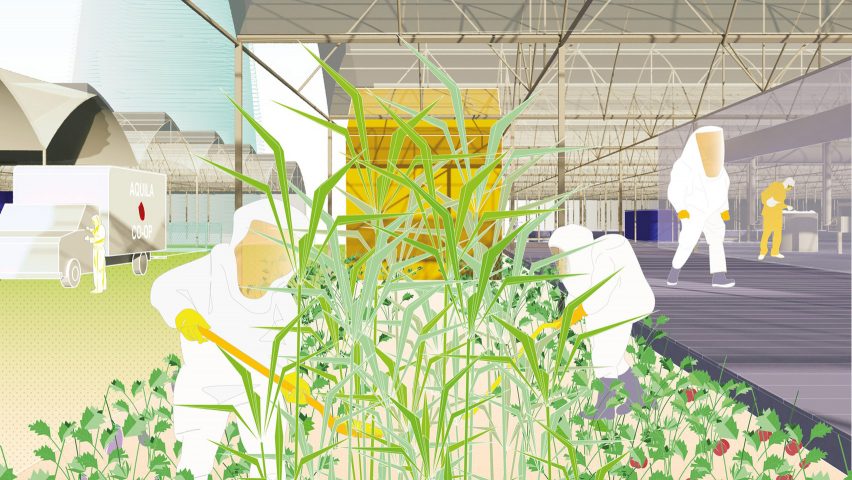An architecture platform backed by the European Union is being launched across Europe this summer to support emerging architects and identify solutions for the environmental and climate crises.
Kickstarting in June, LINA will organise regular events to bring together young creatives with leading professionals and organisations that are championing sustainable architecture.
The platform, which is being coordinated by the University of Ljubljana's architecture department and directed by architect Matevž Čelik, is being funded by a €2.1 million (£1.75 million) grant from the European Union's cultural programme Creative Europe.
LINA will help "emerging generation to take the lead"
According to the organisers, the goal is to adapt architecture to the circular economy and help "deliver the European Green Deal" – a set of proposals by the European Commission aiming to make Europe the first climate-neutral continent.
"The objectives of LINA are to mobilise the architectural field for clean, circular and sustainable projects, to bring together actors to tackle the climate crisis more effectively, while creating opportunities for the emerging generation to take the lead in this field and spread their ideas to as many people as possible," Čelik told Dezeen.
"LINA's work will be to find, highlight and support emerging individuals and groups who are researching and developing things in areas that can contribute to the transformation of building into a less environmentally damaging activity," he continued.
LINA, which is the successor to the Future Architecture platform also directed by Čelik, is an acronym that stands for Learning, Interacting and Networking in Architecture.
Organisations from 23 countries involved
The platform will coordinate workshops, architectural exhibitions, conferences and publications. The first conference, which will mark its launch, is set to take place in Ljubljana this autumn.
These initiatives will support young professionals who are developing sustainable solutions for the built environment by assisting with research and prototyping and by showcasing their ideas through exhibitions and events.
It will also enable them to collaborate with renowned and relevant partners within the field.
Eight European festivals are currently collaborating with LINA, alongside three museums, two galleries, three foundations, four research networks, two publishing houses and six universities that collectively span 23 countries.
Among these are Tbilisi Architecture Biennial and Copenhagen Architecture Festival, as well as the Mies van der Rohe Foundation, the MAXXI museum in Rome and the Luma Foundation Arles.
Some of the educational institutions involved are Design Academy Eindhoven, the Institute of Architecture and Design at Technical University of Vienna and the Department of Architectural Design at the ETSAM.
"International cooperation" urgently needed
According to Čelik, facilitating this kind of collaboration between architects is key to the sector alleviating its impact on the climate crisis.
"Research by the European Council of Architects shows that two-thirds of architectural practices in Europe still live off traditional design work, that two-thirds of practices are still one-person practices," Čelik explained.
"Of these, only a fifth develop wider collaborations with other practices, and international collaboration between architects is virtually non-existent," he continued. "To tackle the climate crisis, we urgently need more architectural research and more international cooperation. And the European Union supports this."
After its launch in 2022, LINA will hold a conference in Copenhagen as part of the World Architecture Capital programme in 2023, and in 2024 it will hold an event in Sarajevo during the 40th anniversary of the city's transformation for the Winter Olympics.
The platform is scheduled to end in 2025. However, if further funding is granted it could continue until 2029.
In 2020, the European Union announced plans for the New European Bauhaus as part of its sustainability-driven coronavirus recovery plan. It is modelled on the influential Bauhaus design school and is hoped to kickstart a cultural and sustainable movement in the European Union.
Among its ambassadors is BIG founder Bjarke Ingels, architect Shigeru Ban and artist Olafur Eliasson.
The visual is of the Agro Commune created by Stephanie Kyuyoung Lee for Future Architecture.

